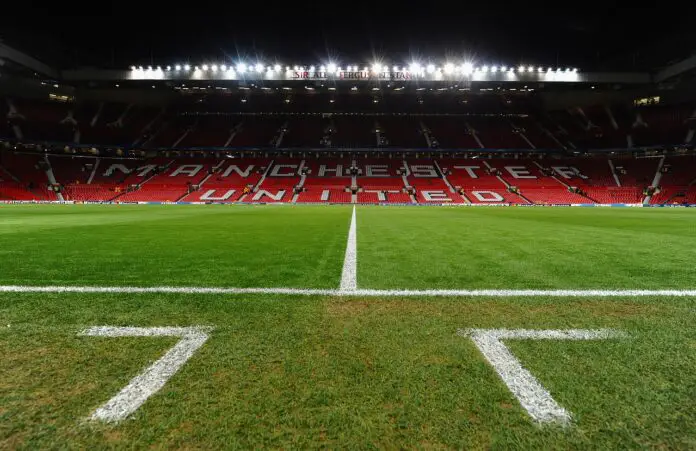Manchester United’s 2024–25 campaign has been anything but steady. What should have started as a season of progress under the guidance of Erik ten Hag quickly unravelled into a string of defeats, leading to his departure in late October. The club then went through a brief period under Ruud van Nistelrooy before bringing in Ruben Amorim. Expectations were high, as United fans hoped this fresh face would turn things around. However, results have remained mixed at best.
A telling illustration of their season is their Premier League position. After 24 matches, United found themselves stranded in the lower half of the table, with just 29 points. Their once-feared attack appears to have lost its edge, averaging just over a goal per game. At the same time, their defence has shown worrying lapses, conceding more goals than many of the clubs ahead of them. While there have been occasional bright moments—such as that 2–1 derby win over Manchester City in December—the overall feeling has been one of underperformance. Fans who are used to Champions League football are now peering nervously over their shoulders, wondering if the team could slip any further down the league.
Compounding their struggles is a Europa League campaign that hasn’t provided much solace. The schedule has been hectic, with several key fixtures crammed into short spells. Injuries, loss of form, and a general dip in confidence have all played a part. Critics argue that the squad’s depth isn’t what it should be, and the January transfer window looked like the ideal time to address that. However, the club’s activity was surprisingly muted, and many are now questioning whether this apparent caution was a carefully calculated plan or a dangerous bet.
A History of Big Spending Gone Wrong
Not too long ago, Manchester United were throwing large sums of money at the transfer market in the hope of finding quick fixes. Sir Jim Ratcliffe himself is known to believe that, in the past, the club has been guilty of acting like players at an online casino, hurling cash around and praying for a jackpot. That approach did lead to some big-name arrivals with price tags that had supporters buzzing. But those lofty fees often came with equally high expectations, and it’s fair to say that not everyone lived up to the hype. Just as you’d be a fool to play at an online casino without checking a sister site form guide, United all too often didn’t check the form guide before bringing players in.
These big-money moves have, at times, put the club under financial pressure. When things went well, nobody questioned the strategy. However, when performances dipped, both fans and pundits started to point fingers at the enormous wage bill and the unbalanced nature of a squad packed with names but lacking genuine cohesion. Failed transfers, managerial changes, and a restless fanbase created a vicious cycle, making each new window feel like a desperate scramble to right the wrongs of the past.
People might argue that you can’t buy success if the fundamental structure behind the scenes isn’t sound. Without the right coaching and a clear plan, expensive recruits are just expensive risks. This realisation has left some supporters longing for a more measured approach—one that focuses on long-term thinking rather than short-term splurges. However, with the team struggling so badly this season, the question is whether a cautious stance will help or, paradoxically, hurt the club even more.
The Quiet January Window
Despite their troubles, the most recent transfer window was hardly a flurry of signings. In the end, the biggest incoming move was the £30 million capture of left-back Patrick Dorgu from Lecce. While that might sound like a reasonable piece of business on the surface—especially considering the injuries and inconsistency in United’s defence—it doesn’t compare to the big-spending windows fans have seen in seasons gone by.
Meanwhile, outgoings were more noticeable. Winger Antony left on loan to Real Betis after failing to settle, while Marcus Rashford, a long-time United favourite, headed to Aston Villa on a temporary deal. It’s been reported that major clubs abroad were keen on him, but his high wage demands complicated the discussions. On top of that, Tyrell Malacia also went to PSV Eindhoven, further trimming the defensive unit.
In the eyes of many supporters, the lack of any blockbuster signings was a missed opportunity. If ever there was a moment to bring in a top-quality striker or attacking midfielder, it was now. With the team languishing, a spark could have shifted momentum. Others, however, applaud the new approach, suggesting that it was time for a reality check and to move away from throwing money at problems that run deeper than personnel alone.
Is a Quiet Window the Bigger Gamble?
On the face of it, a quiet window seems like a responsible decision. It suggests the club is learning from past mistakes, carefully sizing up its needs rather than reacting hastily. By not splashing out, United are also avoiding further financial strain, which could allow them to take a more calculated stance in future windows. This is especially relevant considering the behind-the-scenes changes brought in by Sir Jim Ratcliffe, who appears determined to shift away from the more impulsive methods of old.
That said, it’s a tough season to be turning off the cash tap. With results not going United’s way, critics argue the team needed a serious shake-up, the sort of jolt that a marquee signing can provide. A major star could have injected new life into a stagnant attack or added leadership in a leaky backline. By choosing to take a measured approach, United risk sinking further in the table if their current squad doesn’t come good. The club’s recent results haven’t exactly encouraged the idea that all they need is time.
Then there’s the matter of team morale. Players, like fans, sometimes respond to the excitement of a new arrival, someone who can bring fresh ideas and positivity. Without that injection of energy, it’s on Ruben Amorim and his staff to reignite the squad from within. If they succeed, it’ll be a validation of the quieter approach. If they fail, it’ll be proof that a bit of mid-season shopping might have been exactly what they needed.
In the end, the choice not to spend big this January could end up being the biggest risk of all. The club is already in unfamiliar territory in the league, drifting worryingly close to the relegation zone instead of competing for European positions. To climb the table, they need a turnaround in form, something that might normally be aided by new signings.







